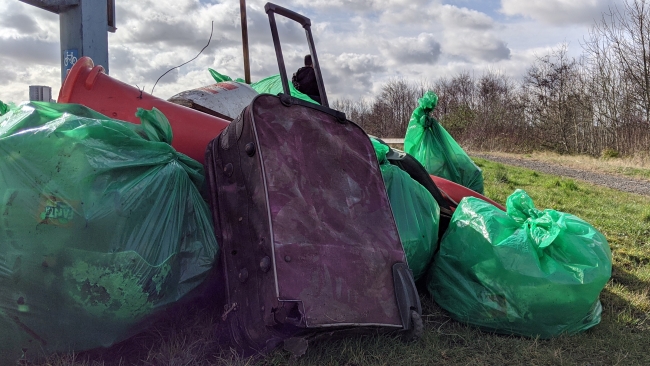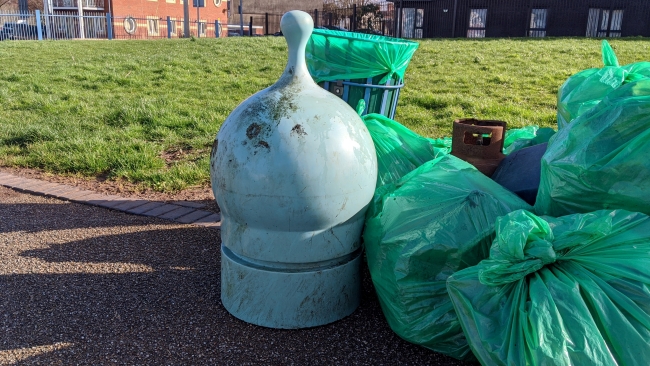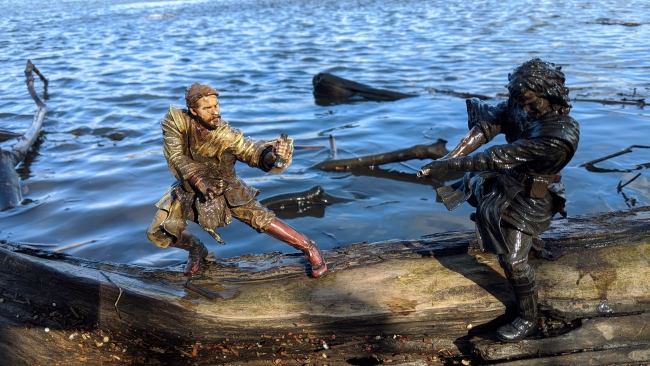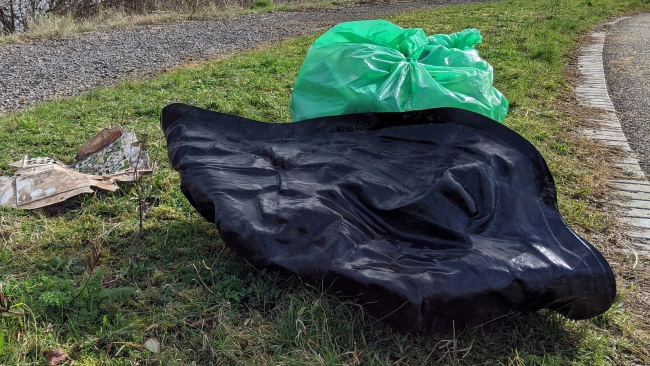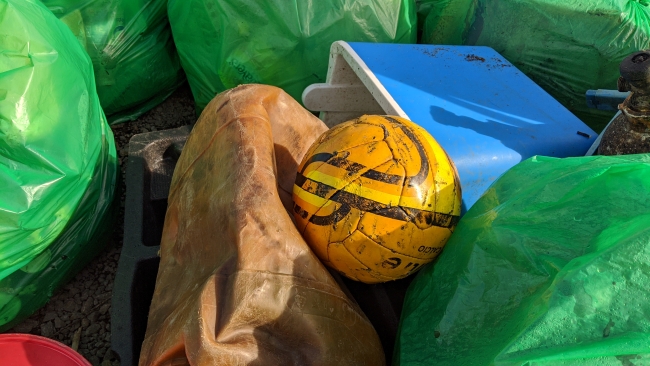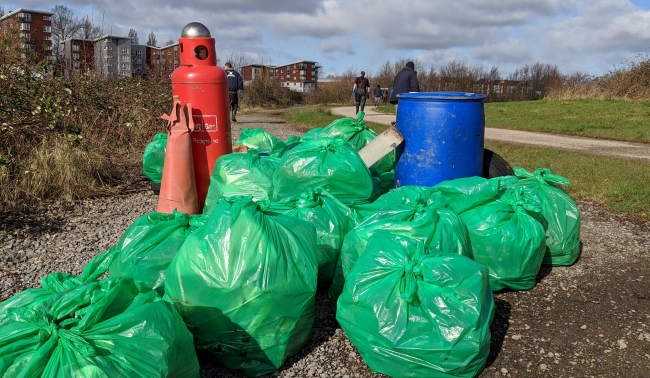Determined volunteers set to work collecting tonnes of rubbish brought into Cardiff Bay by Storm Dennis. What will they find and why do they do it?
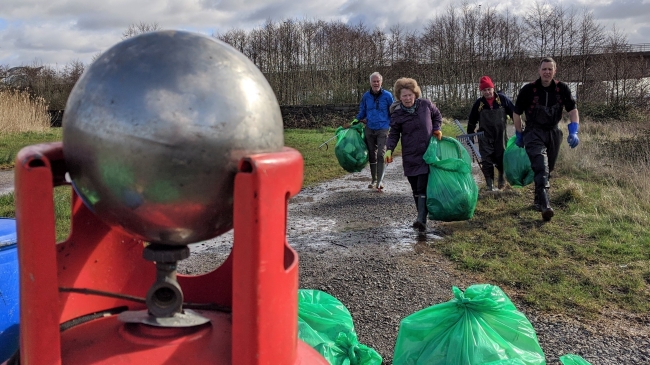
At the North entrance to Hamadryad Park, Dave King MBE stands beaming in front of a Cardiff Rivers Group trailer. He is coordinating new arrivals, telling them to be careful on the slippery banks and to watch out for needles.
By 9.45am, the first wave of volunteers has already broken through a fortress of bushes, brambles and trees and are scouring the embankment for every piece of litter they can find.
Those in rubber boots ease onto the muddy shoreline, while others in full waders, stride out confidently into the murky, plastic-filled abyss.
Dummies, the insole of a shoe and a Christmas bauble are among the first items to fill the bright green rubbish bags. Jabbing at the undergrowth with a litter picker can reveal a variety of unusual cast aways. But nothing surprises Dave anymore.
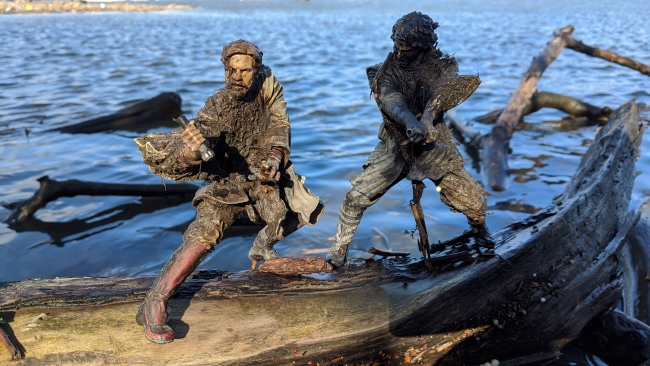
“You name it, we’ve basically found it I think,” he says, and with good reason. From cars and bicycles to tables and three-piece suits, Dave and his fellow pickers can reel off all manner of discoveries from their escapades, even items that have flowed foul of the law.
“Quite a number of safes have been stolen and dumped in there,” he says casually, before going on to explain that gas bottles, jewellery and a murder weapon have all been fished out of the river’s contraband.
Dave, a founding member of Cardiff Rivers Group, was awarded his MBE in 2019 for services to the environment.
Three days after meeting the Queen at Buckingham Palace, he was back to trudging through the muddy thickets and picking up rubbish in this same spot on the northern entrance to the Bay. For the veteran of over ten years, his main motivation is simple. “I detest litter,” he says
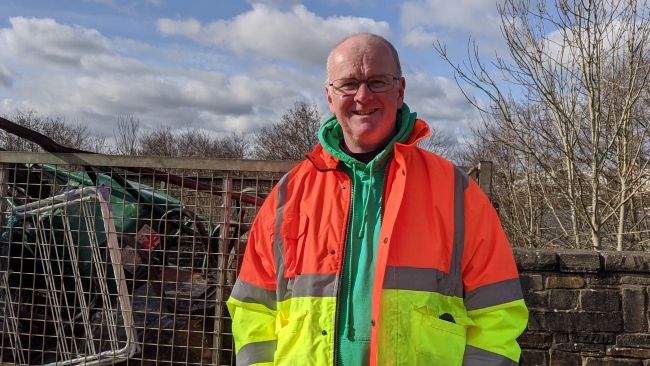
Dave isn’t the only retiree among the volunteers today. In fact, he’s not even the only Dave. Lugging full bags from the edge of the river bank to the path for collection is frequent attendee of a little over a year, Dave Hoyle.
He still remembers his Cardiff Rivers Group litter-picking debut. “First one was Radyr Cricket Club, think that was on the side of the Taff, that was horrendous,” he says. “It just amazes me what people will throw into the river.”
Despite having already bagged a sheep’s skull today, Mr Hoyle, like all the volunteers, is in high spirits. “It’s doing something for the environment and the community. Gets me out of the house, bit of exercise.”
Cardiff Rivers Group has a strong base of older volunteers, but also attracts younger participants. Their last event in Bute Park on Sunday was the first following Storm Dennis and was attended by whole families, including young children.
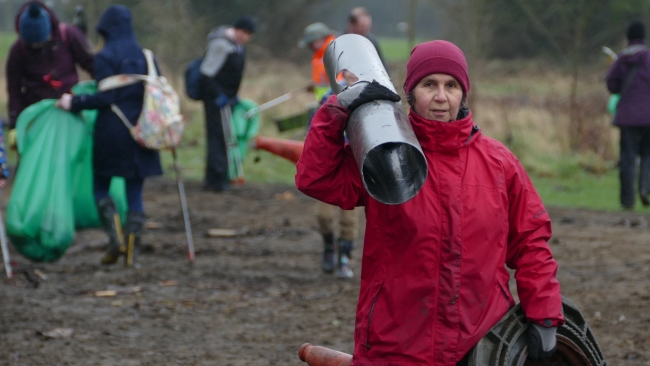
Reflecting on the group’s recent success, Dave King says: “It does show the power of community and the power of volunteering and in two hours what a good number of people can really achieve.”
Today in Hamadryad Park on a windy Wednesday morning it is a much more modest affair compared to last week’s crowd of over 130 people. There are still more than 25 volunteers but humans far from dominate the space.
This area of Cardiff is home to a variety of birds, which keep a watchful eye on the litter-picking intruders. Coots, great crested grebes and mallards skim across the water, cautiously avoiding any ambitious human waders, while several different gulls fly over their heads.
At one point, a grey and brown moorhen with a yellow-tipped beak can be seen dabbing at what appears to a large pale eel. The eel turns out to be a drifting piece of indiscernible plastic.
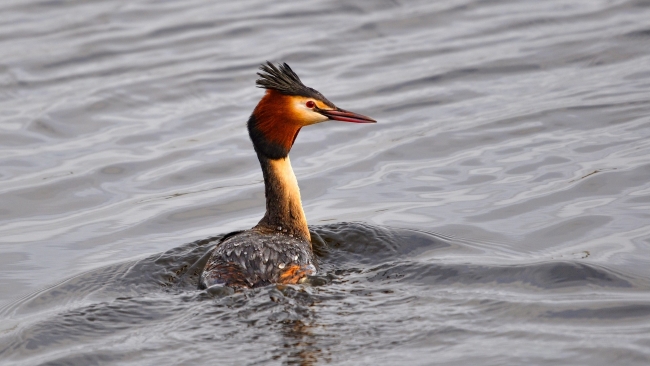
The goal of these latest cleans, as Dave King puts it, is to “blitz’” as much of Cardiff as possible before the nesting season begins next month. “Nesting season runs from March through to end of August and its actually illegal then to disturb nesting birds,” he says.
“For us down here in the Bay the issue is the birds that nest in the reeds. We can’t go trapesing through the reed beds for fear of disturbing them.”
Two years ago, Cardiff Rivers Group cut down some sections of reeds to remove plastic outside of the nesting season. Jon Wallis, the group’s wader-wearing Vice Chairman, describes how far small plastics had infiltrated the reed bed.
“It was just layer after layer,” he says. “You’d pick a layer up, there’d be another one underneath, and another one under that going back I don’t know how many years.”
By leaving a fringe around the edge, the idea was to create a natural barrier. “The bits we did have grown up and we seem to have stopped the worst of it washing in,” he says.
This, however, was before the relentless onslaught of fast flowing water generated by Storm Dennis, which battered them down. And the blockades created by the volunteers weren’t the only ones to fail.
A large artificial structure, known as a boom, stretches out from the embankment, creating a barrier across part of the Taff. It is one of numerous booms installed by Cardiff Council to contain logs and other floating debris.
Despite being locked together by concrete pillars, two sections of this boom gave way under the storms’ ferociousness.
The boom’s failure allowed waves and waves of rubbish to pass further into the Bay where it eventually became trapped and stockpiled. The end result is vast swathes of floating rubbish and untellable amounts hidden below the surface.
Earlier this month, Council Leader, Cllr Huw Thomas announced the city had experienced the highest river flows recorded since Cardiff Bay’s impoundment, at over 700 cubic metres per second, combined on the Taff and Ely.
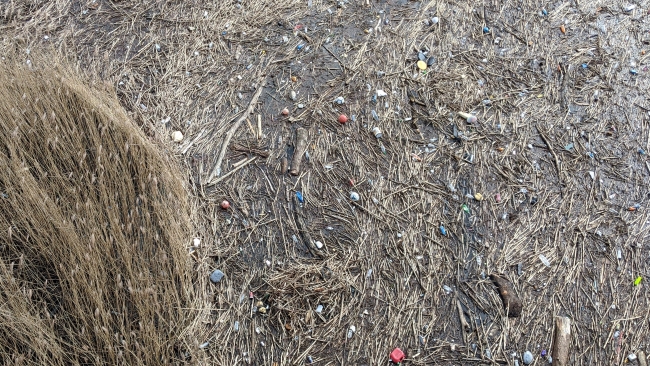
After thanking Council staff and residents, he said: “A significant amount of debris, however, has come down the rivers and into Cardiff Bay and there is the potential for more debris, currently beyond the Harbour limits, still to come downstream. I want to assure residents that over the coming days our teams will be working hard to clean up the area and to help where help is needed.”
The Council operate specially designed boats in the Bay which act like floating snow ploughs to scoop up the waste and dispose of it.
Even with the booms intact, the Cardiff Harbour Authority collects several hundred tonnes of natural debris and rubbish this way each year. Storm Dennis will now make their work even more challenging.
Back at the entrance to Hamadryad Park the scale of the problem could be completely overwhelming for a group of people, armed with only litter pickers and plastic bags. However, it appears nothing will stop Cardiff Rivers Group and coordinator Dave King.
“It gives me a purpose,” he says. “I gave up work four years ago and now my focus is doing this voluntary stuff, and I love it.”

